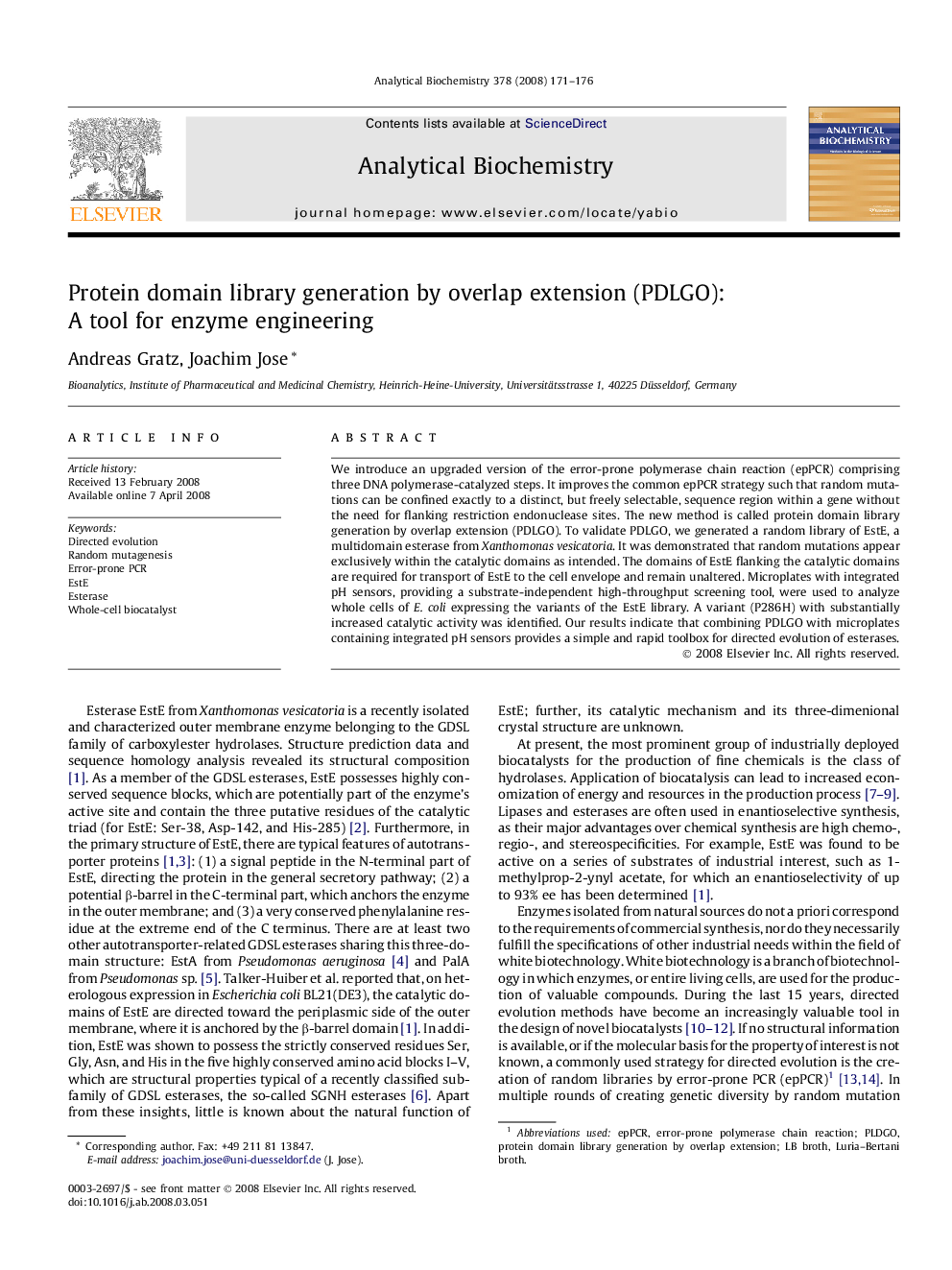| Article ID | Journal | Published Year | Pages | File Type |
|---|---|---|---|---|
| 1175375 | Analytical Biochemistry | 2008 | 6 Pages |
We introduce an upgraded version of the error-prone polymerase chain reaction (epPCR) comprising three DNA polymerase-catalyzed steps. It improves the common epPCR strategy such that random mutations can be confined exactly to a distinct, but freely selectable, sequence region within a gene without the need for flanking restriction endonuclease sites. The new method is called protein domain library generation by overlap extension (PDLGO). To validate PDLGO, we generated a random library of EstE, a multidomain esterase from Xanthomonas vesicatoria. It was demonstrated that random mutations appear exclusively within the catalytic domains as intended. The domains of EstE flanking the catalytic domains are required for transport of EstE to the cell envelope and remain unaltered. Microplates with integrated pH sensors, providing a substrate-independent high-throughput screening tool, were used to analyze whole cells of E. coli expressing the variants of the EstE library. A variant (P286H) with substantially increased catalytic activity was identified. Our results indicate that combining PDLGO with microplates containing integrated pH sensors provides a simple and rapid toolbox for directed evolution of esterases.
